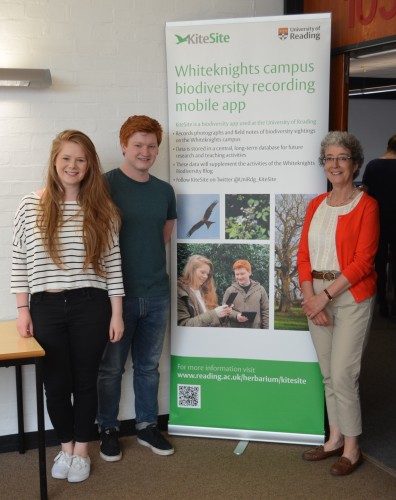

Breaking down Barriers (BdB) – our multidisciplinary inclusive design project – has received a Highly Commended Award for Innovation in Education and Training in the 2016 Chartered Institute of Building (CIOB) International Innovation & Research Awards Scheme.
BdB champions a unique cross-disciplinary initiative to embed inclusive design across the University. Our BdB vision is to ensure Reading graduates across all disciplines advocate inclusion in their professional practices and bring real benefits to the everyday lives of all users, particularly people with conditions related to ageing and/or cognitive and physical disabilities. In Typography, we are engaging with inclusive design across a range of professional design contexts, including digital, packaging, print and wayfinding applications.
Typography students say that our BdB workshops have helped them “gain insight as to how thoughtful design can influence other industries and how we as designers must work together with these other industries in order to make the lives of the people that need a helping hand that little bit easier”.
CIOB Innovation and Research Awards highlight the importance of innovation and research in raising performance levels, enhancing best practice and improving the quality of the built environment. The CIOB judges said: “This innovation in education is a practical, engaging and demonstrable way to bring to life a real social challenge with widespread value and application. The innovation shows a genuine commitment to invest in the UK’s building stock and educate the next generation of professionals to ensure the needs of all users of a facility are firmly met.”
BdB began as an exciting collaboration between the School of Built Environment, the Henley Business School and the School of Arts and Communication Design in 2015. Since then we have been joined by staff within the School of Biological Sciences and collaborated with the Centre for Staff Development and, most recently, the School of Psychology and Clinical Language Sciences, as well as external partners.


